The US has the CFTC and SEC as regulatory agencies. How are they different? Why does the forex market fall under the CFTC and not SEC?
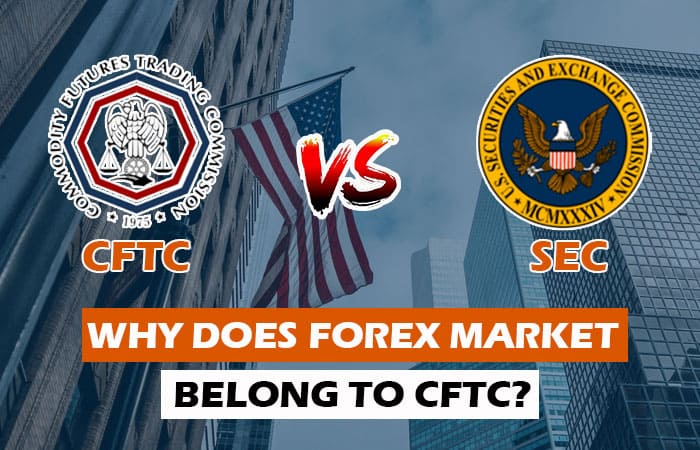
Perhaps it's due to politics, or maybe the workload is just too much for a single entity to handle. Whatever the real reason is, there exist two financial regulatory agencies in the United States: the CFTC and the SEC. It is no secret that there are overlapping jurisdictions over the US financial markets, which are more or less caused by the existence of these two similarly functioning agencies.
In short, here are two aspects that make the CFTC and SEC different:
- Commodities vs Securities
- Regulatory Regime
What makes them different? Let's find out more by exploring the discussion below.
What is the CTFC?
The Commodity Future Trading Commission (CFTC) is an independent federal agency whose mission is to promote the integrity, resilience, and vibrancy of the US derivatives markets through sound regulation. The CFTC was founded in 1974, replacing the Commodity Exchange Authority whose jurisdiction was limited to agricultural commodities.
The CFTC, on the other hand, is granted the power to regulate futures, swaps, and options markets in all commodities. The CTFC seeks to protect investors from manipulation, unethical trading practices, and fraud.
What is the SEC?
The US Securities and Exchange Commission (SEC) is an independent federal agency that regulates the securities markets with mission of protecting investors, maintaining the markets, and facilitating capital information.
The SEC was founded by Congress in 1934 in response to the stock market crash of 1929. It played a major role in returning billions of dollars to investors following the great recession of 2008 by imposing penalties on responsible financial institutions and individuals.
The Difference Between CFTC and SEC
The Commodity Futures Trading Commission (CFTC) and the Securities and Exchange Commission (SEC) are both regulatory bodies in the United States that oversee different aspects of the financial markets.
While there may be some overlap in their areas of focus, they have distinct roles and responsibilities. Here are the key differences between the CFTC and the SEC:
Commodities Vs Securities
Let's start from the basics. The "C" in CTFC stands for Commodity and the "S" in SEC stands for Securities. So in short, the CTFC regulates commodities, and the SEC regulates securities. It should be that simple, right?
Well, these two terms obviously have different meanings, but let's take a look at their statutory definitions for the sake of clarity.
In a simplified sense, we can define securities as financial instruments that can be traded. Here is the definition of securities according to the U.S. Code Title XV Section 77b(a)(1):
"The term 'security' means any note, stock, treasury stock, security future, security-based swap, bond, debenture, evidence of indebtedness, certificate of interest or participation in any profit-sharing agreement, collateral-trust certificate, preorganization certificate or subscription, transferable share, investment contract, voting-trust certificate, certificate of deposit for a security, fractional undivided interest in oil, gas, or other mineral rights, any put, call, straddle, option, or privilege on any security, certificate of deposit, or group or index of securities (including any interest therein or based on the value thereof), or any put, call, straddle, option, or privilege entered into on a national securities exchange relating to foreign currency, or, in general, any interest or instrument commonly known as a 'security', or any certificate of interest or participation in, temporary or interim certificate for, receipt for, guarantee of, or warrant or right to subscribe to or purchase, any of the foregoing."
On the other hand, this is how the U.S. Code Title VII Section 1a(9) defines commodities:
"The term 'commodity' means wheat, cotton, rice, corn, oats, barley, rye, flaxseed, grain sorghums, mill feeds, butter, eggs, Solanum tuberosum (Irish potatoes), wool, wool tops, fats and oils (including lard, tallow, cottonseed oil, peanut oil, soybean oil, and all other fats and oils), cottonseed meal, cottonseed, peanuts, soybeans, soybean meal, livestock, livestock products, and frozen concentrated orange juice, and all other goods and articles, except onions as provided in section 13–1 of this title, and all services, rights, and interests in which contracts for future delivery are presently or in the future dealt in."
In a simplified sense, commodities are also things that can be traded. But since it is a statutory definition, they have to be thorough with their description. The majority of commodity as stated by the Act includes agricultural goods, except onion. Why onion?
Well, apparently in 1955, two onion traders by the name of Sam Siegel and Vincent Kosuga gained millions of dollars by unethically controlling and monopolizing the onion futures market. A public outcry ensued, and in the aftermath, Congress passed a bill that banned futures trading in onions.
The most interesting part, however, is not the exclusion of onions. But rather, it is the inclusion of "contracts for future deliveries" which refers to futures contracts. If you still don't have any idea, future contracts are legal agreements to buy or sell something at a predetermined price at a specified time in the future, thus allowing investors to make speculations.
When it comes to agricultural products, future contracts make sense as the producers are committed to growing their crops in order to deliver them to the market in the future. The same can be said about mining products such as gold, silver, etc.
Now, consider this: anything that has something to do with futures contracts counts as a "commodity" in accordance with the U.S. Code Title VII provided above. The thing is, "contracts for future deliveries" of securities do exist.
By this definition, securities are also subject to regulation by the CFTC if they are traded with futures contracts. This is one of the reasons for overlapping jurisdictions in the market, in addition to other respective interpretations of the CFTC and SEC on the prevailing laws or regulations.
We said earlier that statutory definitions will help clarify this matter, but it doesn't seem to be the case. However, we can say that in accordance with the US Code Title VII and XV, the CFTC regulates investments in commodities to be delivered in the future, while the SEC regulates investments in securities.
See Also:
Regulatory Regime
In order to clear the confusion of who regulates what, Congress passed legislation mandating the CFTC and SEC to team up for creating a regulatory regime that governs the market.
Under the 2010 Dodd-Frank Wall Street Reform and Consumer Protection Act, the CFTC is assigned full responsibility to regulate swaps, and the SEC to regulate security-based swaps. Interestingly, insurance products are not regulated by either agency as they are neither swaps nor security-based swaps.
Swaps include the following:
- Broad-based security indexes.
- Interest rates and other monetary rates such as interbank offered rates, money market rates, general lending rates, etc.
- Government Debt Obligations, which are rates or yields of the US Treasuries and other exempted securities other than municipal securities.
- Total Return Swaps based on broad-based security indexes or on two or more loans.
And here are some examples of security-based swaps:
- Narrow-based security indexes.
- Yields, which are proxies for prices or values of debt securities, loans, or narrow-based security index except for certain government debt obligations.
- Total Return Swaps are based on a single security index, loan, or narrow-based security index.
In addition to these two, there are also other types of swaps with different kinds of authority granted to the respective agency.
Is It the CFTC or SEC that Has Authority over the Forex Market?
The final rule treats foreign exchange swaps as "swaps", thus the forex market is regulated by the CFTC. All forex transactions are considered "swaps" unless the Secretary of the Treasury makes a written determination that stipulates otherwise.
The three types of forex transactions are as follows:
- Forex Forwards and Forex Swaps.
- Forex Products outside Treasury's determination. These include Forex Options (the most commonly used type of contract in Forex trading), Non-Deliverable Forwards in Forex, Currency Swaps, and Cross-Currency Swaps.
- Forward Rate Agreements, in spite of their "forward" label.
Final Words
The terms "commission" and "security", as it turns out, have overlapping statutory definitions. Thankfully, the 2010 Dodd-Frank Act helps define what falls under the CFTC's jurisdiction and what falls under SEC's jurisdiction by dividing the instruments into several types of swaps.
That said, this scheme doesn't entirely eliminate the confusion. Those who are not sure whether a transaction is a swap, security-based swap, or mixed swap may submit a request to the CFTC and SEC for clarification.

 Dedicated FREE FOREX VPS
Dedicated FREE FOREX VPS Free FOREX Virtual Private Server
Free FOREX Virtual Private Server MT4 Demo Contest, Get $500
MT4 Demo Contest, Get $500 Sign Up for an Account, Claim 60% Deposit Bonus
Sign Up for an Account, Claim 60% Deposit Bonus Free MT4/MT5 VPS 2024
Free MT4/MT5 VPS 2024 Send E-mail and Get Free Merchandise
Send E-mail and Get Free Merchandise $1K Refer a Friend Bonus for Pepperstone Pro clients
$1K Refer a Friend Bonus for Pepperstone Pro clients Maximize Your Earnings with 100% Deposit bonus
Maximize Your Earnings with 100% Deposit bonus Trade to Win, $5,000 Monthly Demo Contest
Trade to Win, $5,000 Monthly Demo Contest Claim 30% + 15% Deposit Bonus from LiteFinance
Claim 30% + 15% Deposit Bonus from LiteFinance

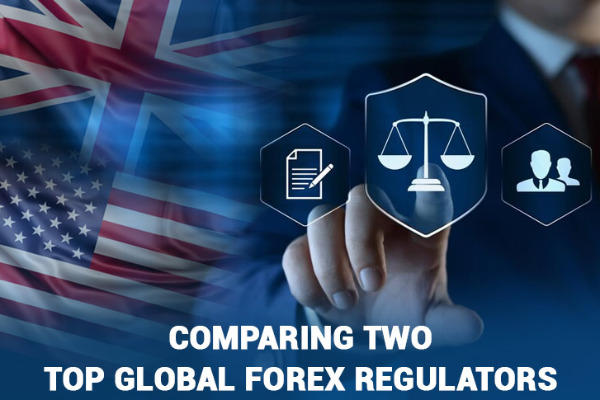
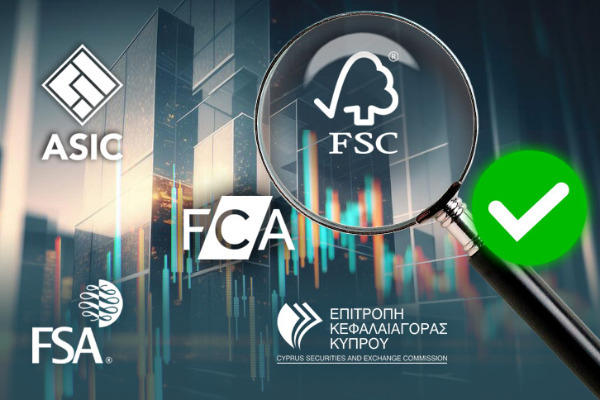


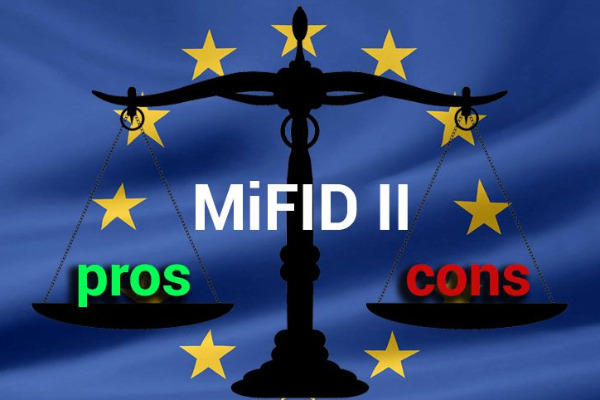
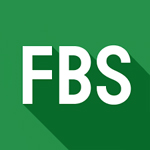











2 Comments
William
Jan 27 2024
Finally, I've grasped the meanings behind CTFC and SEC. Now, I'm curious about what makes the regulators from the USA special. Many traders, including myself, hold the belief that dealing with financial regulators from the USA, like CFTC and SEC, carries more weight than regulators from other countries, such as the example you mentioned, FCA UK. I'm puzzled because, although the USA is undoubtedly an advanced country, is there a specific reason why traders tend to prefer brokers regulated by authorities in the USA over those from other countries? And are there any brokers that regulated from USA?
Fernando
Jan 30 2024